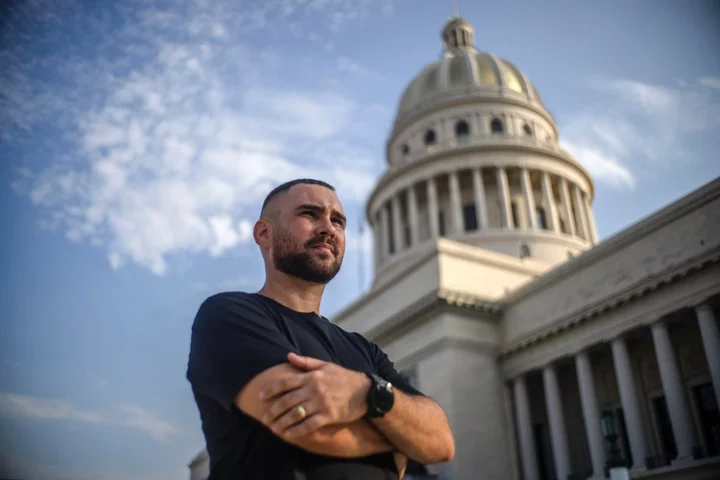
Elián González two decades on: From focus of international tug-of-war to member of Cuba’s congress
Elián González has the same big, expressive eyes he did 23 years ago when an international custody battle transformed him into the face of the long-strained relations between Cuba and the United States. Now 29, González is stepping into Cuban politics. He recently entered his country’s congress with hopes of helping his people at a time of record emigration and heightened tension between the two seaside neighbors. “From Cuba, we can do a lot so that we have a more solid country, and I owe it to Cubans,” he said during an exclusive interview with The Associated Press. “That is what I’m going to try to do from my position, from this place in congress — to contribute to making Cuba a better country.” González has given only a handful of interviews since he was unwittingly thrust into the geopolitical spotlight as a boy. In 1999, at just 5 years old, he and his mother were aboard a boat of Cuban migrants headed toward Florida when the boat capsized in the Florida Straits. His mother and 10 others died while González, tied to an inner tube, drifted in open water until his rescue. Granted asylum under U.S. refugee rules at the time, González went to live with his great uncle, a member of the Cuban exile community in Miami that is often a center of fierce criticism of Cuba's government. In Cuba, his father begged then-President Fidel Castro for help. Castro led protests with hundreds of thousands of people demanding little Elián's return. Anti-Castro groups in Miami pressed for him to stay in the U.S. The tug-of-war quickly gained the world’s attention and became emblematic for the testy feelings between the two neighboring nations. Then-U.S. Attorney General Janet Reno ruled the boy should be returned to his father, but González’s relatives refused. AP photojournalist Alan Diaz captured the moment when armed immigration agents seized González in a Miami home, and the photo later won a Pulitzer Prize. “Not having my mom has been difficult, it has been a burden, but it has not been an obstacle when I have had a father who has stood up for me and been by my side," González told AP. He is a father himself now, of a 2-year-old daughter. He works for a state company that facilitates tourism to the island nation his mother left, underscoring the alternate track his life has followed since his homecoming. What’s more, he recently became a lawmaker. In April, González was sworn in as a member of Cuba’s National Assembly of People’s Power, effectively Cuba’s congress. He represents Cárdenas, a town in Matanzas province about 80 miles east of Havana where he lived until his mother took him to sea. He still lives in the province. Dressed in black pants and T-shirt, with a discreet braided bracelet on his right hand and his wedding ring on his left, González was interviewed in Havana’s Capitol, the renovated seat of congress. “I think the most important thing is that I have grown up like other young people. I have grown up in Cuba,” he said. For years, his father made it nearly impossible to get close to the child. From afar, the boy could sometimes be seen playing with other children or accompanying his father to political events. Castro would visit him on his birthday. Over the years, González was a military cadet and later became an industrial engineer. Because Cuba's congressional positions are unpaid, he will continue to work his tourism job. The legislative body has faced criticism for lacking opposition voices and for carrying out the agenda set by the country’s leadership. González's legislative term comes amid historic emigration from the crisis-stricken Caribbean island, as many young Cubans seek a new life in the U.S. — just as his mother did. It also comes at a moment of heightened tensions between the two nations. There have been allegations that Cuba hosted a Chinese spy base, which Cuba adamantly denies. Meanwhile, Cuba claims Biden has yet to ease tough policies enacted by Donald Trump that target the island, while the U.S. points to resumption of some flights and sending of remittances. Amid a deepening political and energy crisis in Cuba, González cast blame on decades of American sanctions stifling the island's economy as the root of many of Cuba's problems, echoing many in the government. He said he believes in Cuba's model of providing free access to education and health services among other things, but acknowledged there is a long way to go for that to be perfected. Despite harsh prison sentences doled out by Cuban courts, punishments defended by the communist government, González said his people have the right to demonstrate. But he added that the causes of current crises should be analyzed before condemning the state. He also had kind words for the hundreds of thousands of Cubans who, like his mother, chose to emigrate. “I respect all those who made the decision to leave Cuba, I respect those who do so today, just as I do my mom,” he said. “My message will always be that (those who leave) do all they can to ensure that Cuba has a status (without sanctions) equal to any country in the world.” Read More Ukraine war’s heaviest fight rages in east - follow live Charity boss speaks out over ‘traumatic’ encounter with royal aide Jersey Shore towns say state's marijuana law handcuffs police and emboldens rowdy teens AP Week in Pictures: Latin America and Caribbean In workaholic Japan, 'job leaving agents' help people escape the awkwardness of quitting
2023-06-30 12:22
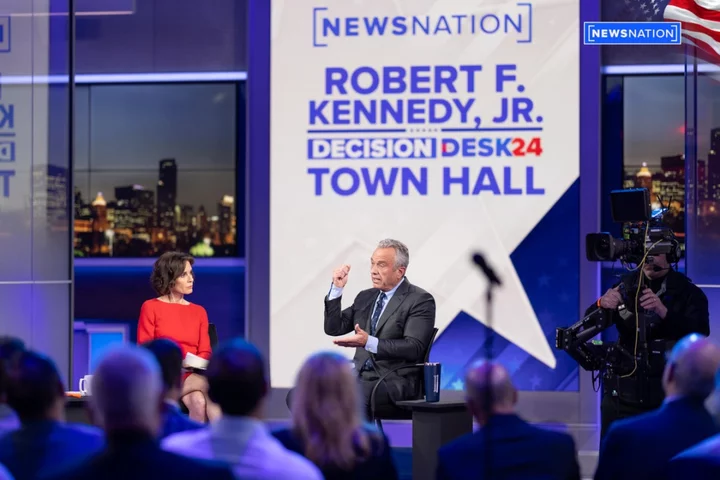
Robert F Kennedy Jr says he is ‘proud’ to have Trump’s praise
Robert F Kennedy Jr., the longshot presidential candidate and latest scion of the storied Kennedy political dynasty, appears to be leaning in to the “Democrat in name only” label that is beginning to follow his campaign. The 2024 hopeful appeared on cable news network NewsNation on Wednesday, where he offered a revealing look at his strategy up until this point and appeared to offer an olive branch to former President Donald Trump. "I'm proud that President Trump likes me, even though I don't agree with him on most of these issues," said Mr Kennedy. "Because I don't want to alienate people, I want to bring people together. I'm proud that all these people like me and that I have independent supporters and Democratic supporters." Mr Trump previously had called him “a very smart guy” who had been “very nice to [him]” in comments to reporters on Monday. "Every Democrat says, 'I want to end the polarization. But how do you do that without talking to people who don't agree with you? How do you do that without appealing to people? My purpose is to find the issues, the values that we have in common other than focus on the issues and the personalities that keep us all apart,” Mr Kennedy went on to claim. At the same time, he declined to agree to support the eventual winner of the 2024 Democratic primary, suggesting that party loyalty is low on his list of priorities. Mr Kennedy spoke with moderator Elizabeth Vargas and members of an audience selected with help from a nonpartisan organisation; Democratic voters peppered him with questions on numerous topics including his well-reported support for conspiracy theories and misinformation about vaccines. Mr Kennedy has long insisted that he is not “anti-vaccine”, but at Wednesday’s event insisted repeatedly that the FDA and other medical authorities were lying about the safety of many vaccinations. For that reason, as well as the fact that the incumbent Democratic president is running for re-election and heavily favoured to win, mainstream media networks and reporting outfits have struggled internally with how best (if at all) to cover Mr Kennedy’s campaign. The Democratic National Committee (DNC) has scheduled no primary debates for the 2024 season, and is not likely to do so, much to the chagrin of Mr Kennedy and fellow 2024 Democratic hopeful Marianne Williamson. Mr Biden, 80. is the oldest president to ever hold office and will be 86 when he finally leaves office should he win and serve for a full second term. Many polls have shown that a sizeable chunk of the Democratic Party — not to mention independents — would prefer that the Democratic Party nominate a younger successor, just as most Americans would prefer that the 2024 GOP nominee be someone other than Donald Trump. He remains the heavy favourite to win a Democratic primary, however, and polls showing Mr Kennedy and Ms Williamson with signficant support do not take into consideration the fact that other, more well-known Democrats with stronger national political operations would quickly jump into the presidential field should Mr Biden bow out. Among those other Democrats thought to be eyeing national ambitions in 2024 and beyond include Mr Biden’s vice president, Kamala Harris, as well as others like governors Gretchen Whitmer and Gavin Newsom. Read More Trump demanded to get ‘my boxes’ back from feds as indictment loomed Meet Jesse Watters, the Fox News host helming Tucker Carlson’s primetime slot Judge rejects Donald Trump's request to toss out defamation claims by columnist Accused Jan 6 rioter arrested near Obama’s home after making threats towards ‘public figure’ Editor apologises for publishing RFK Jr anti-vaxx screed: ‘I should have been fired’ YouTube removes Robert F Kennedy Jr video featuring bizarre claim that polluted water makes children transgender
2023-06-30 08:52
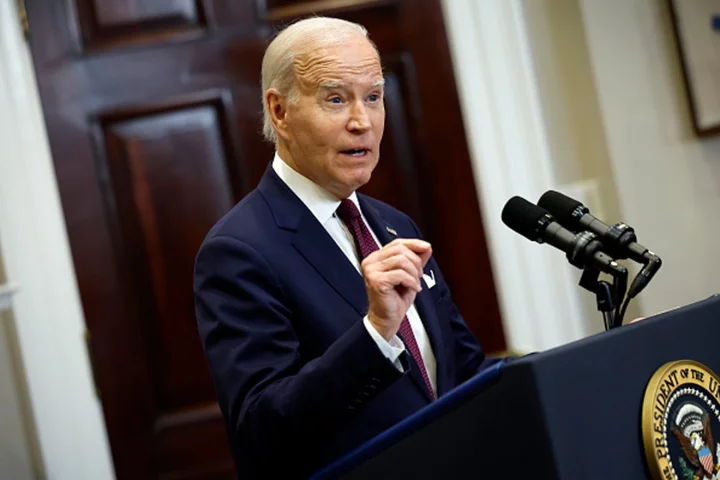
Biden condemns Supreme Court striking down affirmative action: ‘This is not a normal court’
President Joe Biden said he “strongly, strongly disagreed” with a Supreme Court decision to strike down the decades-long use of affirmative action in college admissions. The court’s conservative majority overturned admissions plans at Harvard and the University of North Carolina, saying race can no longer be considered as a factor in universaity admissions. The landmark ruling overturns generations of affirmative action, which began in the 1960s as a way to increase diversity after the hard-won success of the civil rights movement. Chief Justice John Roberts said that, for too long universities have “concluded, wrongly, that the touchstone of an individual’s identity is not challenges bested, skills built, or lessons learned but the color of their skin. Our constitutional history does not tolerate that choice.”Justice Clarence Thomas — the nation’s second Black justice, who had long called for an end to affirmative action — wrote that the decision “sees the universities’ admissions policies for what they are: rudderless, race-based preferences designed to ensure a particular racial mix in their entering classes.” However, Justice Sonia Sotomayor wrote in dissent that the decision “rolls back decades of precedent and momentous progress.” President Biden urged colleges not to let the ruling “be the last word” as he praised Justice Sotomayor and the other dissenting judges, Elena Kagan and Ketanji Brown Jackson. “Discrimination still exists in America. Today’s decision does not change that,” Mr Biden said. “I believe our colleges are stronger when they’re racially diverse. Our nation is stronger because we are tapping into the full range of talent in this nation. We cannot let this decision be the last word.” The rulings come from two consolidated cases, Students for Fair Admissions v University of North Carolina and Students for Fair Admissions v Harvard College. Both were brought by anti-affirmative action organisation, Students for Fair Admissions, headed by conservative legal strategist Edward Blum. While the court upheld such programmes in a decision nearly two decades ago, the newly-emboldened conservative majority swept away any legal justification for them in Thursday’s opinions. In a 6-3 and 6-2 decision, it claimed the use of race-conscious admissions was a violation of the Equal Protection Clause of the 14th Amendment. Now, higher education institutions will no longer be allowed to consider race as a factor in admissions. Instead, students who wish to have their race or culture considered in their application will have to volunteer the information in their personal essay. Asked about the court’s decision to strike down a long-standing precedent, Mr Biden remarked: “This is not a normal court.” Leaders from Harvard said in a letter that they would “comply” with the court’s decision but emphasised that “deep and transformative teaching, learning, and research depend upon a community comprising people of many backgrounds, perspectives, and lived experiences”. Mr Biden said he will direct the Department of Education to find ways to improve diversity without using race as a conscious factor in admissions and recruiting. The Harvard Black Students Association called the court’s decision “detrimental”, adding that it “poses a significant threat to the future of the Black community on and beyond our campus”. “It is evident that the college application system cannot maintain holistic evaluation without taking into consideration how race profoundly influences our experiences, perspectives, and identities in multifaceted ways,” it wrote. Derrick Johnson, president and chief executive of the NAACP, said in a statement: “In a society still scarred by the wounds of racial disparities, the Supreme Court has displayed a wilful ignorance of our reality.” Discussions around affirmative action have generated debate among Republicans and Democrats for years. Those in support of it believe it is necessary to create fair and equal opportunity for students of color because higher education institutions have failed at creating diverse student bodies. Those against affirmative action believe it puts other students, such as white or Asian American students, at a disadvantage. Donald Trump celebrated the ruling, saying it was the result “everyone was waiting for” in a post on Truth Social. “We’re going back to all merit-based – and that’s the way it should be!” the former president wrote. Mr Trump appointed three of the six conservative justices on the Court while president: Neil Gorsuch, Brett Kavanaugh and Amy Coney Barrett. His former vice president, Mike Pence, also expressed support for the court’s decision, tweeting: “I am honored to have played a role in appointing three of the Justices that ensured today’s welcomed decision.” He added: “There is no place for discrimination based on race in the United States, and I am pleased that the Supreme Court has put an end to this egregious violation of civil and constitutional rights in admissions processes, which only served to perpetuate racism.” The ruling could have repercussions beyond higher education institutions, extending to elementary, middle and high schools as well as workplaces and more as it opens a door for challenges to racial diversity programs. Read More US judge temporarily blocks Mississippi law on state police permits for some protests In the Supreme Court chamber, the subject was race, the mood was somber, the criticism harsh Affirmative action is out in higher education. What comes next for college admissions? Justice Ketanji Brown Jackson delivers searing civil rights lesson in dissent to affirmative action ruling How the government that promised to ‘stop the boats’ has lost control of its immigration policy Clarence Thomas says he doesn’t have a ‘clue’ what diversity means as Supreme Court takes aim at affirmative action One year after the anti-abortion ruling, the White House keeps a spotlight on the issue
2023-06-30 07:53
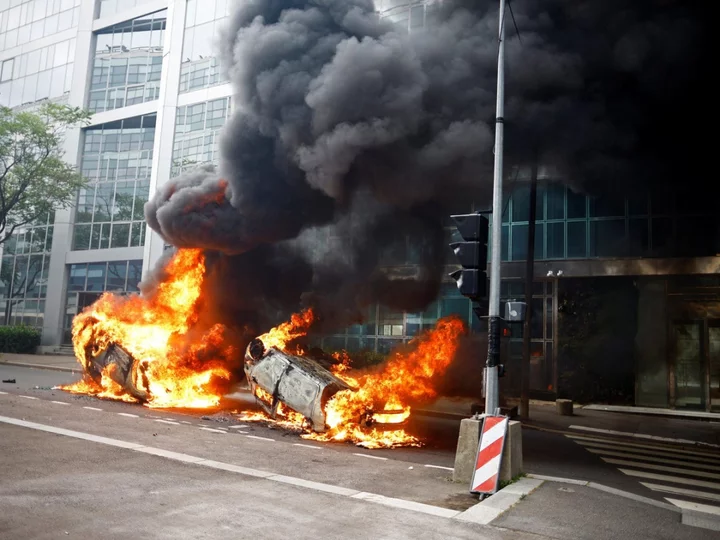
‘This is war’: France burns amid angry protests after teenager shot dead by police in Paris suburb
The stones and fireworks flew towards the police from the hands of protesters, and it was not long before vehicles were ablaze – acrid black smoke drifting into the air and mixing with the tear gas released into the crowds by officers. “This is war”, said one protester as he loaded his pockets from a flower bed in preparation for the advancing police. These were the latest clashes in a spate of violence stretching into a third evening in the wake of a teenager shot dead by police during a traffic stop in the Paris suburb of Nanterre. The officer involved in the shooting of 17-year-old Nahel M is facing preliminary charges of voluntary homicide and was placed under arrest, as President Emmanuel Macron struggles to contain spiralling public anger over the killing. There have been more than 180 arrests, with around 40,000 officers deployed across France on Thursday evening to quell any further clashes, with around 5,000 in the Paris suburbs alone. Local authorities in Clamart, about five miles from central Paris, imposed a nighttime curfew until Monday. Valerie Pecresse, who heads the greater Paris region, said all bus and tram services were halted after 9pm as people prepared for more violent protests. “It's millions of euros of public service gone up in smoke, it's millions of public money from working-class neighbourhoods,” Ms Pecresse said of the clashes. “It's irresponsible, it's wrong, and it has to stop.” The afternoon began with the largely peaceful march – with thousands participating – in honour of the French-Algerian teenager, led by his mother Mounia. That was in stark contrast to the clashes across the previous two nights, where fires were set and official buildings like town halls were attacked. As for the march, Nahel’s mother was leading the crowd from the roof of a rented van when the procession came to a halt at the Place Nelson Mandela in Nanterre – just metres away from where her son was shot – when the tear gas rolled in. She later told broadcaster France 5 that she doesn’t resent the whole police force - just the officer who fired the lethal shot that killed her son. "I don't blame the police," Mounia said, before adding that the officer "didn't have to kill my son". A police presence had been notably absent throughout the 90-minute ”marche blanche” for Nahel on Thursday afternoon, but the crowd’s chants were directed at them: “No justice, no peace”. When the lines of officers finally appeared, those mourning Nahel’s death finally had a target for their anger. There had been no signs of violence before the first canisters of tear gas dropped into the crowd, but as soon as the clouds began to billow, dozens of protesters retaliated with fireworks pointed in the direction of armoured police cars. Loose concrete was thrown at nearby buildings, smashing their glass facades, while a nearby digger was set alight. Protesters scrawled “Vengeance for Nahel” across buildings and bus shelters. The unrest has spread to other French cities, from Toulouse in the south to Lille in the north, as frustrations over police violence erupted in scenes reminiscent of the Paris riots of 2005. Then, unrest convulsed France for three weeks and forced then-president Jacques Chirac to declare a state of emergency. That wave of violence erupted in the Paris suburb of Clichy-sous-Bois and spread across the country following the death of two young people electrocuted in a power substation as they hid from police. Two officers were acquitted in a trial 10 years later. This time the spark was the shooting of Nahel during Tuesday's morning rush hour. He initially failed to stop after the Mercedes AMG he was driving, with two passengers inside, was spotted in a bus lane. Two police officers caught up with the car in a traffic jam. When the car made to drive off, one officer fired at close range through the driver's window. Nahel died from a single shot through his left arm and chest, Nanterre public prosecutor Pascal Prache said. He added: "The public prosecutor considers that the legal conditions for using the weapon have not been met". Lawyers for Nahel's family have called the killing "an execution". A view shared by Green party leader Marine Tondelier who said that "what I see on this video is the execution by police of a 17-year-old kid, in France, in 2023, in broad daylight". The officer has acknowledged firing a lethal shot, the prosecutor said, telling investigators he wanted to prevent a car chase, fearing he or another person would be hurt after the teenager allegedly committed several traffic violations. The lawyer for the charged officer, Laurent-Franck Lienard, told French media: "Having devoted his life to protecting people and ensuring the law is respected, he is now being detained for having had to use his firearm as part of his job." Nahel – who was too young to own a full driving license in France – was known to police for previously failing to comply with traffic stop orders, Mr Prache said. Police initially said one officer had shot at the teenager because he was driving his car towards him. That version was quickly contradicted by a video circulating on social media. The video shows two police officers beside a Mercedes AMG car, with one shooting at the driver at close range as he pulled away. Nahel was an only child raised by his single mother, who is studying for an electrician’s certificate, according to French media. He had also joined a community rugby project. The lawyers for his family said he was “well liked” locally, while his grandmother Nadia called him a “good, kind boy”. Tuesday's killing was the third fatal shooting during traffic stops in France so far in 2023, down from a record 13 last year, a spokesperson for the national police said. A figure that was noted by some of the placards in the march. There were three such killings in 2021 and two in 2020, according to a Reuters tally, which shows the majority of victims since 2017 were Black or of Arab origin. President Macron has called the killing “unforgivable” but at an emergency meeting to discuss the crisis on Thursday he called the attacks on public buildings and other violence “totally unjustifiable”. “The professionals of disorder must go home,” the interior minister, Gerald Darmanin, said, speaking from the northern town of Mons-en-Baroeul, where several municipal buildings were set alight. He said while there is no need yet to declare a state of emergency – a measure taken to quell weeks of rioting in 2005 – he added: “The state’s response will be extremely firm.” He also said that scores of police had been injured throughout the clashes with protesters. Residents around Nanterre are preparing for a long night on Thursday, with parking spaces emptying around the centre as people fear their car being set alight. Several burnt-out vehicles still line the road from last night, with authorities unable to clear it in time before today’s trouble broke out. Several fires were already burning by late-evening – with one engulfing the ground floor of a building, where a bank is located – and the sound of sirens could be heard all over Nanterre. “The whole sky is black,” says one protester, who asked not to be named. “The police caused this mess.” Read More French suburbs are burning. How a teen's killing is focusing anger over police tactics France police shooting latest: Paris commune implements overnight curfew after officer charged with homicide Riots in Paris: Where are the French riots and why are they happening? French suburbs are burning. How a teen's killing is focusing anger over police tactics Who is Nahel? The teen shot dead by police in France France’s highest administrative court says the soccer federation can ban headscarves in matches
2023-06-30 06:24
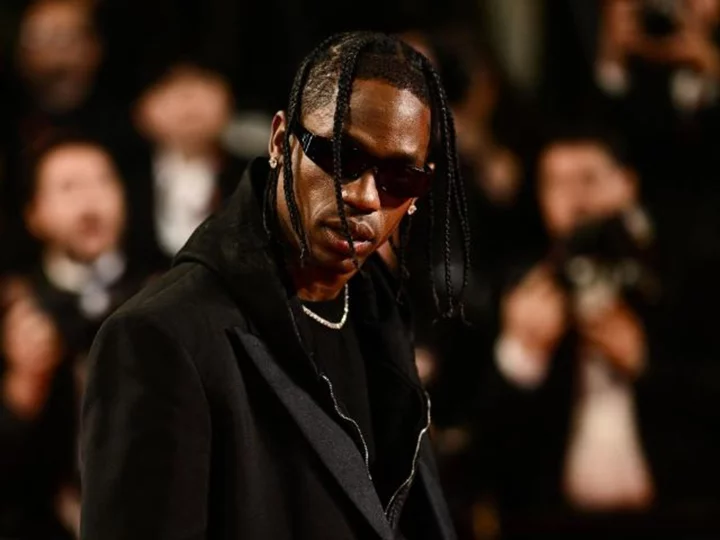
Travis Scott will not face criminal charges over Astroworld crowd crush
Travis Scott -- the rapper and producer who organized the ill-fated 2021 Astroworld Festival -- will not be indicted in connection with the crowd crush that left 10 people dead and injured hundreds at the event, District Attorney Kim Ogg announced Thursday.
2023-06-30 06:15
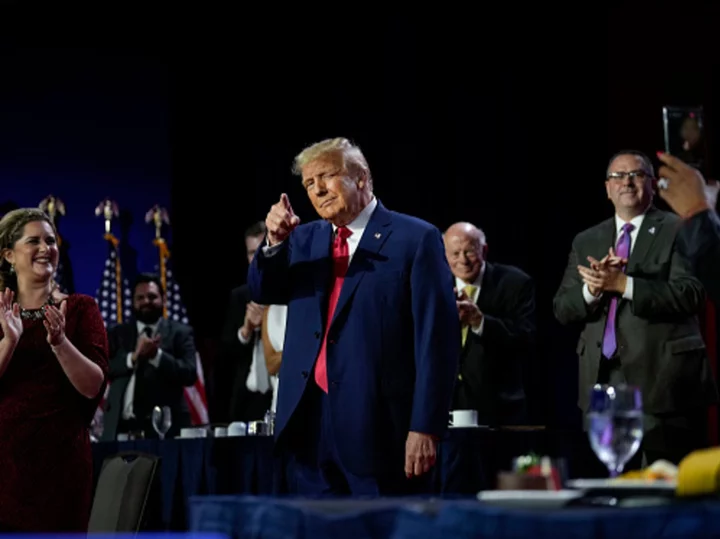
Trump demanded to get ‘my boxes’ back from feds as indictment loomed
As Donald Trump’s lawyers began preparing for a federal indictment, the ex-president was allegedly still hoping to get the documents and boxes seized from Mar-a-Lago back, according to a report. Mr Trump referred to the classified material as “my boxes” and “my documents” and asked his lawyers to retrieve the material, sources with direct knowledge of the matter told Rolling Stone. The Independent has reached out to Mr Trump for comment. Throughout special counsel Jack Smith’s investigation into Mr Trump’s alleged mishandling of the material and after his indictment, the ex-president has maintained his innocence and claimed ownership over the documents under the Presidential Records Act. “Under the Presidential Records Act — which is civil, not criminal — I had every right to have these documents,” Mr Trump said in a speech at his New Jersey golf club following his arraignment on federal charges. Last year, the Federal Bureau of Investigation (FBI) seized multiple boxes of documents, of which 21 were labelled “Top Secret” and some contained information related to nuclear weaponry of the United States Mr Trump was indicted on 37 counts related to willful retention of national defence information, conspiracy to obstruct justice, withholding a document or record, corruptly concealing a document or record, concealing a document in a federal investigation, scheme to conceal and making false statements and representations. The FBI forcibly seized the classified material after discovering Mr Trump had allegedly not turned over documents from his time in office. “In addition to having every right under the Presidential Records Act, is that these boxes were containing all types of personal belongings — many, many things, shirts and shoes, everything,” Mr Trump added. Under the Presidential Records Act, Mr Trump was required to turn over all records to the National Archives or go through the proper steps to dispose of records that no longer held administrative, historical, informational or evidentiary value. To do so, Mr Trump would have had to seek the views of the Archivist of the United States. Over and over again on Truth Social and in speeches, Mr Trump has cited this law, incorrectly, to assert his ownership. Even in the indictment, which was unsealed earlier this month, one of Mr Trump’s attorneys testified to federal investigators that the former president did not want to hand over the classified material when the federal government requested it. The attorney alleged that Mr Trump told him “I don’t want anybody looking through my boxes” and allegedly suggested they “just don’t respond at all” to investigators requesting Mr Trump return the boxes. Mr Trump was arraigned on his indictment earlier this month in Miami, Florida. Read More Prosecutors are prepared to hit Trump and his allies with new charges, sources say Top Trump aide revealed as individual he allegedly showed classified map, report says Trump news - live: DoJ prepared for more charges as insider trading scheme uncovered at Trump Media SPAC New ad mocks Trump’s excuse that he was too ‘busy’ to hand back boxes of secret government intel Is Donald Trump going to prison? Trump fumes about ‘illegally leaked’ CNN tape of him boasting about classified documents
2023-06-30 05:59
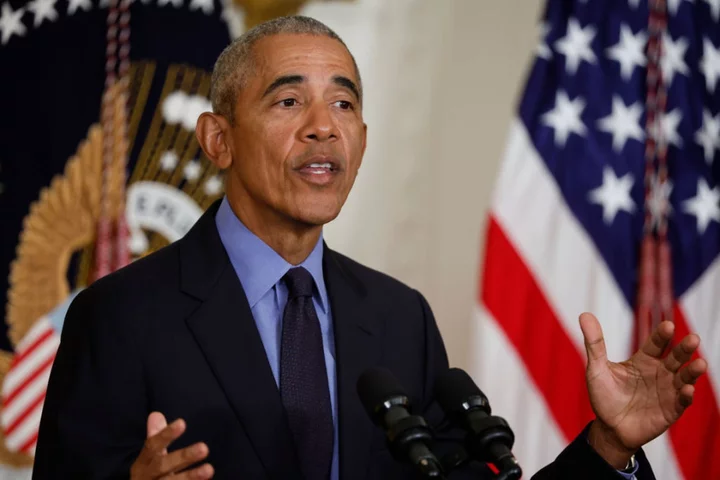
Accused Jan 6 rioter arrested near Obama’s home after making threats towards ‘public figure’
A shocking scene played out in the wealthy Washington DC neighborhood of Kalorama on Thursday as a man was chased by police and Secret Service while he ran towards the home of former President Barack Obama — and as the man warned authorities that he had an explosive device. According to the DC Metropolitan Police Department, 37-year-old Taylor Taranto was arrested near Mr Obama’s home on Thursday. CBS News reported that he fled after being spotted by Secret Service, who had apparently been alerted to his intentions after Mr Taranto made “threats during recent livestreams on social media”. Mr Taranto had an active arrest warrant related to the attack on the Capitol when he was captured near the former president’s home, according to CBS. DC police confirmed to The Independent that Mr Taranto had been charged with being a fugitive from justice pursuant to another arrest warrant, and that officers had conducted an explosives sweep of his vehicle. “This afternoon, MPD and our federal law enforcement partners arrested 37-year-old Taylor Taranto, of no fixed address, in the 2400 block of Kalorama Road, Northwest. He has been charged with Fugitive from Justice, pursuant to an arrest warrant. Arresting officers requested MPD's Explosive Ordnance Disposal (EOD) Team to perform a vehicle sweep of the individual's van near the location of the arrest. There is no active threat to the community and this incident remains under investigation,” wrote an MPD spokesperson. It wasn’t immediately clear if Mr Obama or any members of his family were home at the time of the incident. The former president was in DC just two days ago for lunch with his former VP, incumbent President Joe Biden, as the latter begins the long work of running for re-election. The Independent has reached out to US Secret Service for further details. Read More Biden’s economy pitch: Campaign like Reagan while refuting Reagan’s policies Affirmative action is out in higher education. What comes next for college admissions? DeSantis accused of breaking the law with Texas border trip
2023-06-30 05:57
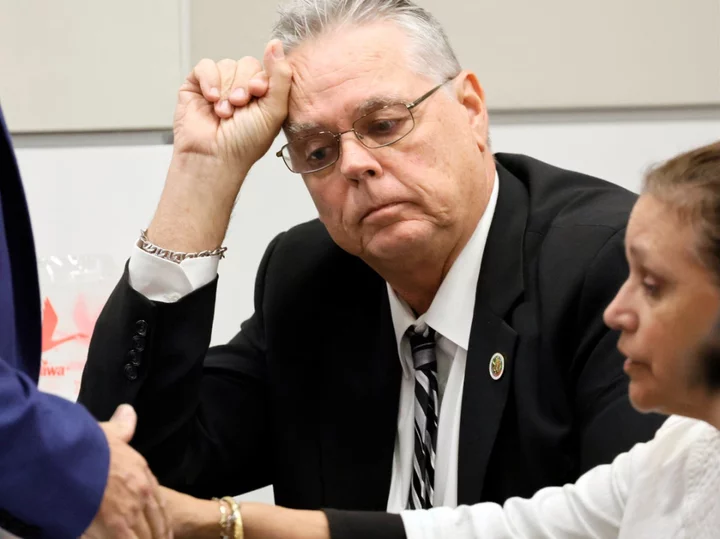
Parkland school police officer who failed to intervene in mass shooting cleared of child neglect charges
The former sheriff’s deputy who failed to act during the Parkland high school shooting in 2018 when 17 people were killed has been found not guilty of child neglect and other charges. Scot Peterson moved away from Marjory Stoneman Douglas High School as children and teachers were inside with the gunman. The ex-Broward County sheriff’s deputy was found not guilty on seven counts of child neglect, three counts of culpable negligence in connection to the deaths and injuries of 10 people on the third floor of the school where the massacre took place, The New York Times noted. Mr Peterson was also acquitted on a perjury charge after telling police that he only heard a few gunshots and that he didn’t see any students fleeing the area. A father of one of the victims has told the former deputy to “rot in hell” and he was branded as the “coward in Broward” after facing criticism from some fellow officers for supposedly being too scared to take action. The gunman, Nicholas Cruz, was sentenced last year to life in prison several years after the shooting that killed 17 people and injured another 17 on 14 February 2018 – Mr Peterson was the only armed resource officer at the school on that day. Mr Peterson, 60, became emotional on Thursday as the Broward County Judge read the verdict at the Fort Lauderdale court. A few family members of the victims were in the courtroom as the verdict was announced. More follows...
2023-06-30 04:17
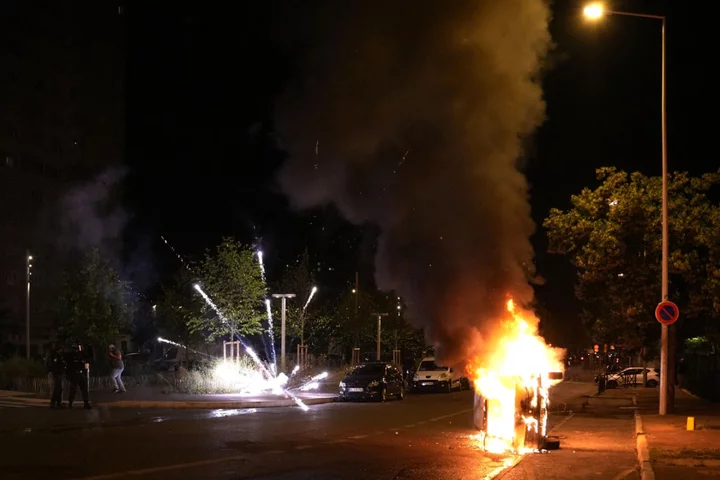
Riots in Paris: Where are the French riots and why are they happening?
France’s President Emmanuel Macron is chairing a crisis meeting of senior ministers in the wake of a second night of rioting following the police killing of a 17-year-old boy, identified as Nahel, in the Paris suburb of Nanterre. There were 150 arrests across the country into Thursday. Police and firefighters struggled to contain protesters and extinguish numerous blazes through the night that damaged schools, police stations and town halls or other public buildings, according to a spokesperson for the national police. Authorities also re fires or skirmishes in multiple cities overnight, from Toulouse in the south to Lille in the north – although the nexus remained Nanterre and the surrounding areas. What happened during the shooting? The 17-year-old, identified as Nahel, was driving a car on Tuesday morning when he was pulled over for breaking traffic rules, prosecutors said. The teenager was too young to hold a full driving license in France. Police initially reported that one officer had shot at the teenager because he was driving his car towards him. But this version of events was quickly contradicted by a video circulating on social media. On Thursday, The Nanterre prosecutor said that witness statements, CCTV video footage, amateur video footage, and statements from police offers were being used to piece together the timeline of events from Tuesday morning. Pascal Prache confirmed that two motorcycle police noticed a Mercedes, with one young driver and two passengers travelling quickly in a bus lane at 7:55am on Tuesday. Police twice attempted to indicate to the car to pull over and park, but the driver continued driving and the two police pursued the vehicle. The Mercedes had to stop at a at a traffic light, at which point the police asked the driver to turn off engine and exit the vehicle. The police officers said they drew their weapons and aimed them at the driver to stop him from taking off in the vehicle. However, the driver did pull away at which point the police decided to shoot. A bullet hit the driver through arm and chest, and the car crashed. One of the passengers fled. Firefighters were called to the scene at 8:21am. They provided first aid to the driver which was unsuccessful. The officer who fired a single shot said he wanted to prevent the car from leaving and because he feared someone may be hit by the car, including himself or his colleague, according to Mr Prache. The police officer is being investigated for voluntary homicide for shooting Nahel. Based on an initial investigation, the prosector Mr Prache said, he concluded that "the conditions for the legal use of the weapon were not met." How did the riots begin? Nahel was of North African descent. The incident has fed longstanding complaints of police violence and systemic racism inside law enforcement agencies from rights groups and within the ethnically diverse suburbs that ring major cities in France. Several people have died or sustained injuries at the hands of French police in recent years, prompting demands for more accountability. France also saw protests against racial profiling and other injustice in the wake of George Floyd’s killing by police in Minnesota. Tuesday’s killing was the third fatal shooting during traffic stops in France so far in 2023. Last year there were a record 13 such shootings, a spokesperson for the national police said. There were three such killings in 2021 and two in 2020, according to a Reuters tally, which shows the majority of victims since 2017 were Black or of Arab origin. Clashes first erupted Tuesday night in and around the Paris suburb of Nanterre, where Nahel was killed. Bins were set alight and some protesters threw fireworks at police. Officers used tear gas on the crowds. The government deployed 2,000 police to maintain order Wednesday. But violence resumed after dusk. How far have the riots spread? Police and firefighters struggled to contain protesters and extinguish numerous blazes through the night that damaged schools, police stations and town halls or other public buildings, according to a spokesperson for the national police. The national police on Thursday reported fires or skirmishes in multiple cities overnight, from Toulouse in the south to Lille in the north, though the nexus of tensions was Nanterre and other Paris suburbs. Police arrested 180 people around the country on Wednesday night, more than half of them in the Paris region. The interior minister, Gerald Darmanin, said 170 officers had been injured in the unrest but none of the injuries were life-threatening. The unrest has revived memories of riots in 2005 that convulsed France for three weeks and forced then-president Jacques Chirac to declare a state of emergency. That wave of violence erupted in the Paris suburb of Clichy-sous-Bois and spread across the country following the death of two young people electrocuted in a power substation as they hid from police. Two officers were acquitted in a trial ten years later. What has been the response from the government? President Emmanuel Macron held a crisis meeting with senior ministers over the shooting on Thursday morning and Mr Darmanin announced afterwards that 40,000 policemen would be deployed across the country, including 5,000 in the Paris region, on Thursday evening to put on end to the unrest. "The response of the state must be extremely firm," Mr Darmanin said. Both Darmanin and the prime minister, Elisabeth Borne, have ruled out declaring a state of emergency for now. On Wednesday, Mr Macron had said the shooting was unforgivable. As he convened his emergency meeting he also condemned the unrest. "The last few hours have been marked by scenes of violence against police stations but also schools and town halls, and thus institutions of the Republic and these scenes are wholly unjustifiable," he said. Reuters and the Associated Press contributed to this report Read More French suburbs are burning. How a teen's killing is focusing anger over police tactics ‘This is war’: France burns amid angry protests after teenager shot dead by police Who is Nahel? The teen shot dead by police in France France’s highest administrative court says the soccer federation can ban headscarves in matches Paris commune implements overnight curfew after officer charged with homicide AP News Digest 3:15 am
2023-06-30 03:48
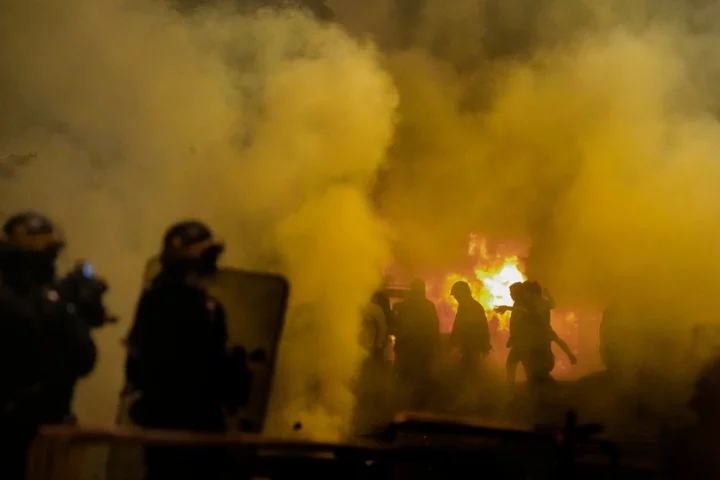
Who is Nahel - teen shot dead by police in France
French president Emmanuel Macron held a crisis meeting as Francewas gripped by violence for a second day on Thursday over the police killing of a teenager of North African descent. Clashes first erupted on Tuesday night in and around the Paris suburb of Nanterre, where the teen, identified as Nahel M, 17, was shot during a traffic check. Nahel's last name has not been released by authorities or his family. His mother has called for a silent march on Thursday in his honour in the square where the teenager was killed. "I lost a child of 17-year-old, they took my baby," the mother, who has not been named, said in a TikTok video. "He was still a child, he needed his mother. This morning he gave me a big kiss and told me he loved me. I told him be careful and I loved him." According to his mother, they both had left the house together. While he went to get a McDonalds takeout, she left for work. "And then I am told they shot my son, what can I do," the heartbroken woman said. "I only had him. I didn't have 10 like him. He was my life, my best friend. He was my son, He was my everything." The victim's grandmother, who also remained unidentified said: “I will never forgive them. My grandson died, they killed my grandson. We are not happy at all, I am against the government." “They killed my grandson, now I don't care about anyone, they took my grandson from me, I will never forgive them in my life, never, never, never.” A video shared on social media showed two police officers beside a Mercedes AMG car, with one shooting at the teenage driver at close range as he pulled away. He died shortly afterward from his wounds, the local prosecutor said. The teenager, who was too young to hold a full license in France, was driving illegally, a source familiar with the investigation told Reuters. The Nanterre prosecutor said the boy failed on Tuesday to obey the officers’ orders. A lawyer for Nahel's family, Yassine Bouzrou, said they want the police officer prosecuted for murder instead of manslaughter. He said he would file an additional complaint for false testimony over the allegation that the victim had tried to run over the police officer. Police arrested 150 people during a second night of unrest, interior minister Gerald Darmanin said, as public anger spilled onto the streets in towns and cities across the country. Some 40,000 police officers will be deployed overnight to quell violence that engulfed cities and towns, the ministry said, adding that 5,000 alone will be sent to Paris. President Macron said the killing was “inexplicable and inexcusable” and called for calm. “Nothing justifies the death of a young person,” he told reporters in Marseille on Wednesday. Read More Paris riots – latest: Police officer who shot teen dead under investigation for homicide as 150 arrested Paris riots: Video shows police interacting with teenager during fatal traffic stop French police, protesters clash in multiple towns after 17-year-old killed by police Who is Nahel? The teen shot dead by police in France France mobilising 40,000 police to stop fresh violence after officer kills teenager Russia has ‘arrested’ General Armageddon over Wagner mutiny – war news live
2023-06-29 21:48
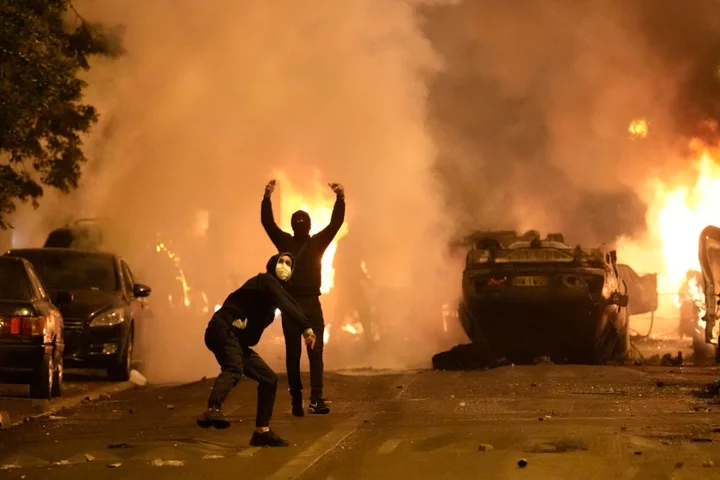
Paris riots – latest: Police officer who shot teen dead under investigation for homicide as 150 arrested
The police officer who fatally shot a 17-year-old boy in a Paris suburb has been placed under formal investigation for voluntary homicide, a French prosecutor said today. The announcement came as Paris witnessed a second night of violent protests with rioters setting cars and public buildings ablaze over the fatal police shooting of teenager Nahel during a traffic stop. Police arrested 150 people overnight, with French president Emmanuel Macron condemning the violence as “unjustifiable. The epicentre of the unrest was in Nanterre, a working-class town in the western outskirts of Paris. The killing, caught on video, shocked the country and stirred up long-simmering tensions between locals and officials in disadvantaged neighbourhoods around France. Clashes first erupted on Tuesday night in and around Nanterre, following which the government deployed 2,000 police to maintain law and order. “The last few hours have been marked by scenes of violence against police stations but also schools and town halls, and thus institutions of the Republic and these scenes are wholly unjustifiable,” Mr Macron said. Read More Second night of riots erupt in Paris over police shooting of teenager as 150 arrested Paris riots: Video shows police interacting with teenager during fatal traffic stop French National Assembly observes minute’s silence for teenager fatally shot by police
2023-06-29 18:47
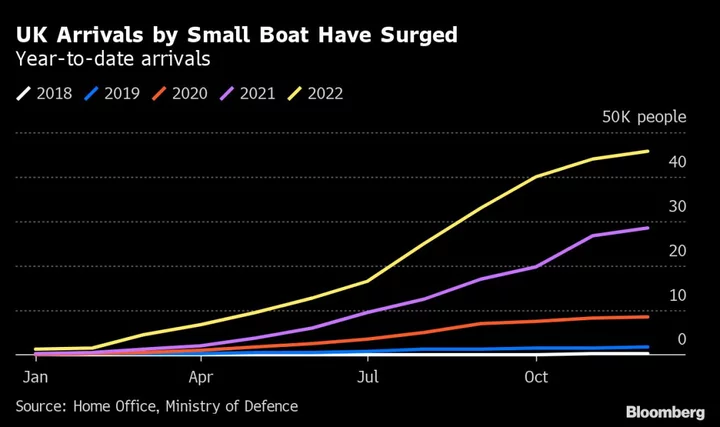
UK Loses Appeal Over Controversial Rwandan Deportation Policy
The UK’s controversial plan to deport asylum seekers to Rwanda is unlawful, the Court of Appeal ruled on
2023-06-29 17:53
You Might Like...
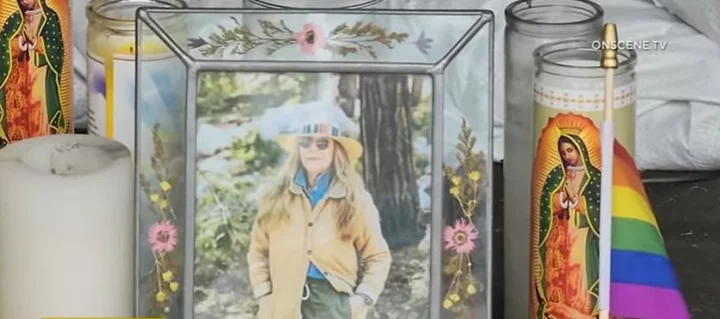
‘This was a hate crime’: Community grieves Laura Ann Carleton’s killing over Pride flag in shop
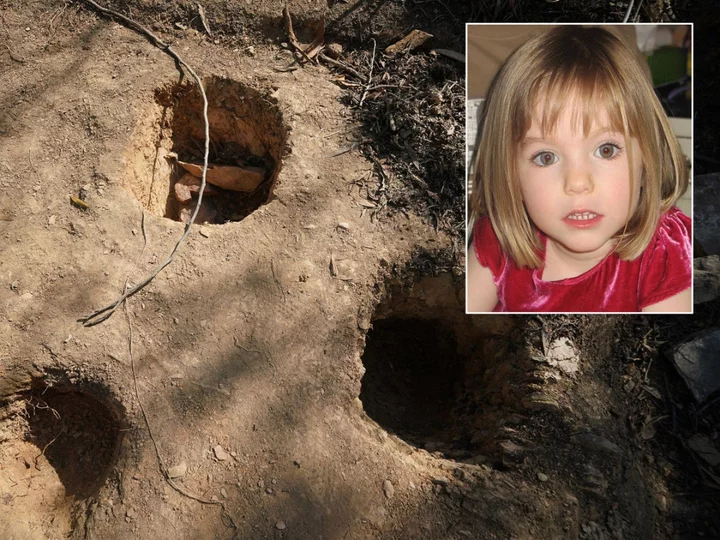
Madeleine McCann – latest news: ‘Shrine’ found at Algarve reservoir launched police search
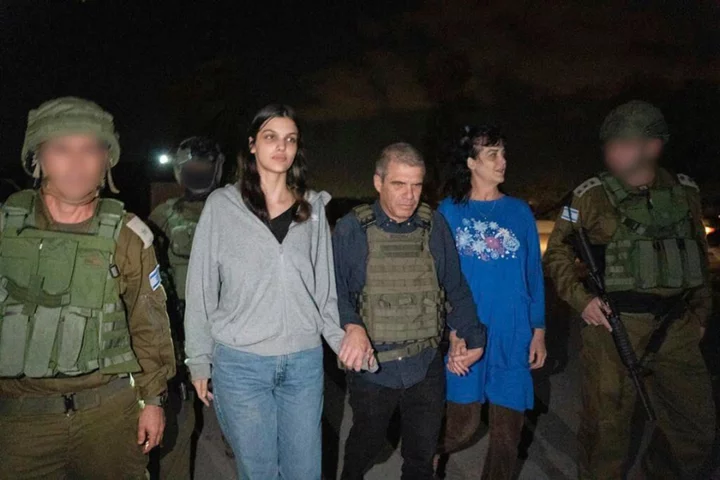
Live updates | Hamas frees 2 American hostages, even as Israel airstrikes continue in southern Gaza

Russia plans to reverse global nuclear test ban, announces envoy

The murky online world of Andrew Tate and ‘pick-up artists’
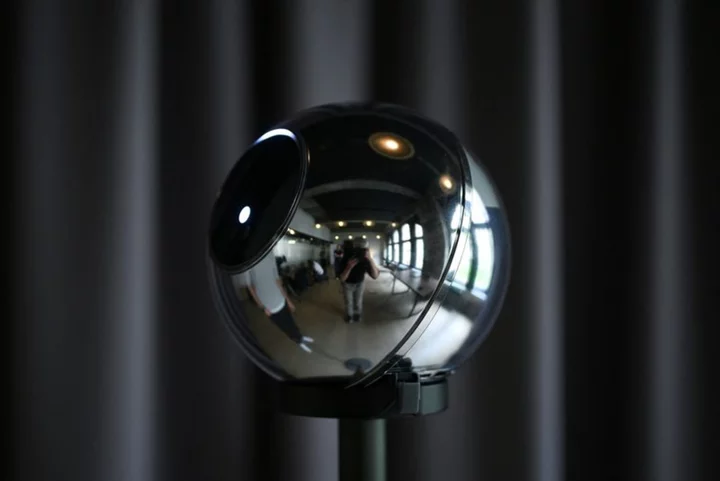
Early adopters in Mexico lend their eyes to global biometric project
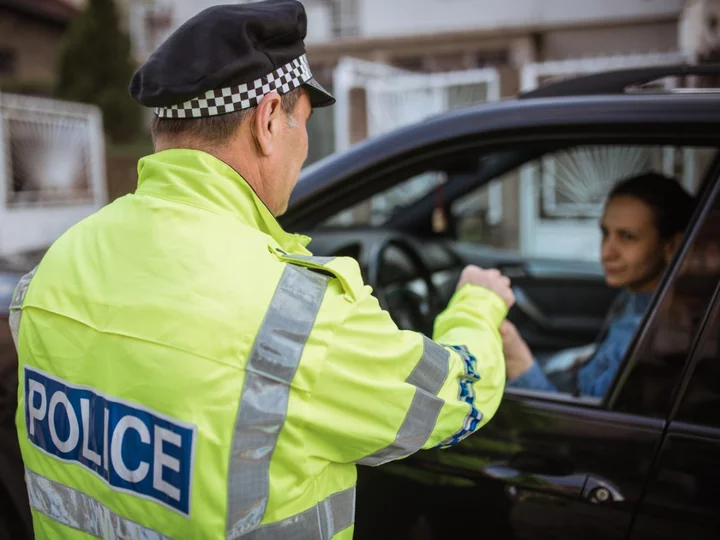
Driver attempts to switch places with dog to dodge speeding ticket
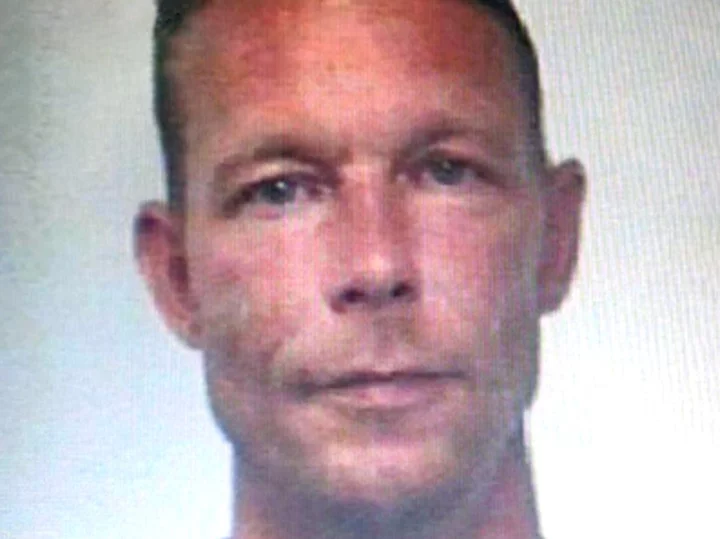
Read Madeleine McCann suspect Christian Brueckner’s bombshell prison letters for the first time
